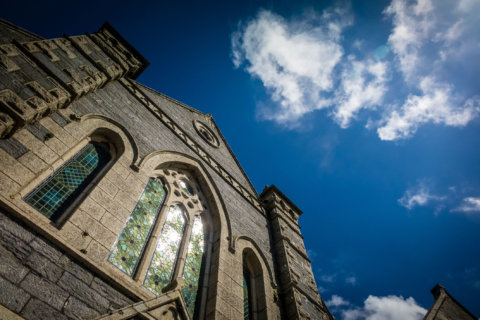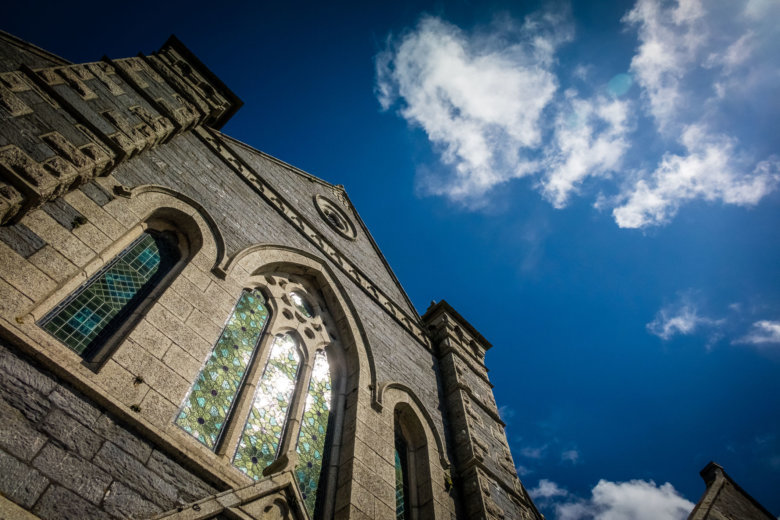
(CNN) — After years of debate, hundreds of United Methodists from all over the world gathered in St. Louis last week to settle the denomination’s stance on LGBTQ clergy and same-sex weddings.
In the eyes of many, they failed.
Following several days of dramatic testimony and prayer, delegates of the denomination’s General Conference voted 438-384 to reinforce the United Methodist Church’s stance against ordaining gay clergy and performing same-sex weddings, in a move that threatens to split the second-largest Protestant denomination in the US, and one that has a growing presence internationally.
United Methodists who spoke to CNN reacted with a mix of devastation and contentment. However, none are celebrating.
‘I feel like someone has died’
Jordan Harris, a gay United Methodist pastor in Somerville, Massachusetts, decided to pursue ministry because of a childhood experience with homelessness. It was a church, he said, that helped his family, and it inspired him to become a pastor and help others.
But now, on the cusp of being ordained and marrying his fiancé, Harris is afraid for the career he’s spent at least eight years preparing for.
“I feel like someone has died,” Harris told CNN.
For years liberal United Methodists like Harris have pushed for the church to adopt more tolerant policies.
The denomination’s Book of Discipline says all people have “sacred worth,” but it denounces the “practice of homosexuality,” and says it is “incompatible with Christian teaching.”
But there are openly gay and lesbian clergy members who serve — in 2016, Karen Phyllis Oliveto became the first married lesbian to become a bishop. While they gay clergy could be removed from ministry, church trials are rare.
Harris was “hopeful” the UMC would continue to take steps towards tolerance this week. He felt some of the proposals up for debate offered a chance for churches with different views to continue to “coexist.”
Like many LGBTQ clergy and United Methodists, Harris hoped delegates would vote for what was known as the Simple Plan — one of three proposed plans that outlined different tracts for the church’s stance on LGBT persons.
The Simple Plan would have removed language prohibiting gay marriage and clergy from the United Methodist Book of Discipline. The Traditional Plan, the one that passed, reaffirmed the church’s current stance.
There was also the One Church Plan, which would have allowed local churches to decided on the issue for themselves but keep the denomination together.
“It felt like we finally got to a place where we were at least able to have constructive dialogue,” he said.
He was ultimately let down. As he watched the conference play out, Harris felt that the traditionalists were unwilling to meet in the middle. And now he’s left disappointed and afraid.
“It’s hard to be in this place where you feel like things are falling apart all around you.”
‘Who are we to legislate love of God?’
The One Church Plan was the path favored by Flo Martin. She’s the wife of a retired minister, and the mother of a current pastor. She’s also been a heavily involved member for most of her life.
But while watching the proceedings online this week, Martin wondered, “Have we really sat down and talked and listened and allowed ourselves to hear each other and each others’ stories?”
Martin preferred the One Church Plan because she felt it afforded people the opportunity to find a church that aligned with their beliefs, “but also room for us to still say we could be together.”
“There are people sitting in pews together that disagree on lots of issues,” she explained. “Not only homosexuality but political issues and other issues. And if there were an emergency they would be there working side-by-side, caring and praying for each other.”
“Who are we,” she added, “to be legislating the love of God, and putting barriers around people being in ministry?”
LGBT people ‘are part of our family’
When the Traditional Plan passed, Keith Mcilwain, a pastor in Slippery Rock, Pennsylvania, said he was pleased with the outcome.
“I wanted to see my preferred plan pass, just like every pastor did,” he said. “But I was keenly aware that no matter which plan passed, people were going to be upset, disappointed and people were going to be in pain.”
“So I could not really celebrate,” he said.
Mcilwain supported the Traditional Plan because it most closely aligned with the church’s theology and its historic stance on homosexuality — that it is “outside the bounds of orthodox Christianity,” he said.
But prior to the conference Mcilwain held meetings with the members of his church to clarify the meeting’s purpose and start a dialogue. He wanted them to understand that the church was not deciding whether gay people were allowed to come to church. That much was not up for debate.
He explained in a letter to his congregation that “our Church is debating how to be in ministry with LGBTQ persons — not whether we will be in ministry with them.”
Mcilwain’s congregation has a mix of members with different political perspectives and beliefs, he said, including gay people.
“They are loved and they love others. We welcome them, they welcome us and we love them,” he said. “They are part of our family.”
“Whether or not we will include them isn’t an issue,” he said. Rather, General Conference’s purpose was to decide “to what extent would it be appropriate to include them.”
The church faces a possible split
But the debate’s not over. The UMC’s Judicial Council — think of it as the church’s Supreme Court — is set to review the Traditional Plan at its meeting in Illinois next month to decide whether it’s constitutional.
If the council upholds the plan, many fear a split is imminent, and that liberal members and more progressive churches will leave the denomination.
And while that’s no one’s preferred route, Mcilwain and Martin are coming to terms with the possibility.
Mcilwain made clear he prefers the church stay together, and he’s hopeful.
“But if some people feel that they cannot remain,” he conceded, “then I love them enough to let them leave.”
Martin pointed out she would have been staunchly opposed to a split in years past. But now she wonders if there’s a way the UMC could split amicably, illustrating to the world that people who have different beliefs can “agree to disagree agreeably.”
But Harris said he’s determined to stay, and he doesn’t believe he’s alone. “The vast majority of the response that I’ve seen … has been one of faithful resistance.”
“I don’t see a whole lot of progressive pastors or LGBTQ people who are adamant about leaving or giving up,” he said. “Rather, I think a lot of us are reinvigorated.”
But right now he’s focused on Sunday, and what he’ll say when he steps into the pulpit. All he can do is share “the same truth I preached last Sunday, and the Sunday before and before that,” Harris said, “which is, you are loved by God.”








